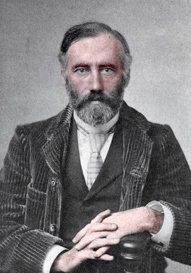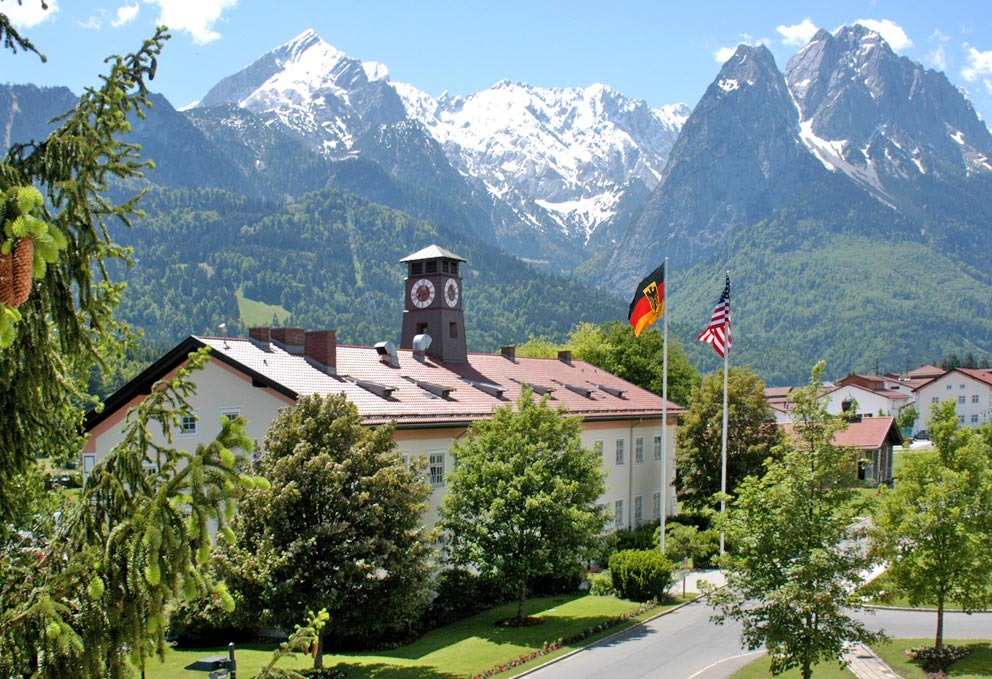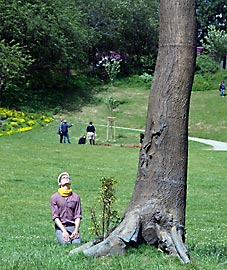 William Q. Judge
William Q. Judge
Foto: Public Domain
Dass W. Q. Judge (1851 – 1896) ein Mystiker war, den man gut und gerne einen SEHENDEN und WISSENDEN nennen kann, ist kaum bekannt. Ebenso wenig sein Œuvre, das aus einigen wenigen Büchern und einer umfangreichen redaktionellen Tätigkeit als Herausgeber u. a. des Magazins THE PATH besteht. Am 21. März 1896 hat Judge viel zu früh die materielle Ebene verlassen. Seine Texte lesen sich auch heute noch als liebevolle Handreichung des Lehrers für Rat suchende Schüler. Und sie sind unverändert brandaktuell. Die Texte von Judge beschäftigen sich zumeist mit konkreten Aspekten der Transfiguration. Seine Bücher Letters That Have Helped Me  und The Ocean of Theosophy
und The Ocean of Theosophy  sind esoterische Klassiker. Ersteres – ein Briefwechsel mit Schülern – ist ein Kompendium zum Umgang mit Fallstricken auf dem Pfad. Letzteres ist eine gut leserliche Zusammenfassung der oft und gern verdrehten Lehren von H. P. Blavatsky und der sie inspirierenden Mahatmas.
sind esoterische Klassiker. Ersteres – ein Briefwechsel mit Schülern – ist ein Kompendium zum Umgang mit Fallstricken auf dem Pfad. Letzteres ist eine gut leserliche Zusammenfassung der oft und gern verdrehten Lehren von H. P. Blavatsky und der sie inspirierenden Mahatmas.
Judge wird heutzutage zumeist lediglich im Zusammenhang mit der Gründung der Theosophischen Gesellschaft (TG), 1975, New York City, erwähnt. Zusammen mit H. P. Blavatsky und H. S. Olcott gehörte er zu den Hauptgründern der als Antwort auf astralen Spiritismus, materialistische Wissenschaft und dogmatische Religionssysteme (Hindu-Hierarchie, Kirchenchristentum) gedachten Vereinigung. Grundlage der Tätigkeit war ein buddhistisch orientierter Moralkodex.
Die TG war bis zum Tod Blavatskys, 1891, und einige Jahre danach eine angesehene geisteswissenschaftliche Bewegung, vor allem in Indien, USA und Europa. Der US-amerikanische Zweig der TG wurde für Judge ab Mitte der 1880er Jahre dessen hauptsächliches Lebenswerk. Gemeinsam mit einem Team treuer Weggefährten entwickelte sich neben einer umfangreichen publizistischen Tätigkeit ein lebendiges Engagement für „the cause,“ wie das Wirken der Meister der Weisheit auch bezeichnet wurde.
Aspekte der Transfiguration des Egos
Währen der Schwerpunkt in Blavatskya Schriften eher auf globalen Zusammenhängen lag – was letztlich zur Veröffentlichung von ISIS entschleiert und Die Geheimlehre führte – richtete Judge sein Augenmerk vor allem auf Aspekte der Transfiguration des Egos. Artikel wie
- Culture of Concentration
- Meditation, Concentration, Will
- An Epitome of Theosophy
- The Inner Constitution of Man
- Occultism
- Meditation
- Astral Intoxication
- Aspirants for Chelaship
geben auch dem heutigen Sucher auf dem Pfad konkrete Antworten auf eine Vielzahl seiner Fragen. Und alles gänzlich unprätentiös und immer verbunden mit dem Hinweis, nichts blind zu glauben, sondern das Erfahrene vor den Richterstuhl der eigenen Intuition zu legen und auf dessen Wahrheitsgehalt zu prüfen.
Geburt eines Bodhisattvas?
Mythen ranken sich um die Geburt von Jugde. Nach glaubwürdigen Aufzeichnungen der Familie wurde der etwa siebenjährige William von einer gefährlichen Krankheit niedergestreckt. Als die Symptome eskalierten, stellte der herbeigerufene Hausarzt den Tod des Jungen fest. Beim Verlassen des Krankenzimmers wandte sich der Arzt noch einmal um. Und bemerkte geschockt, dass der Körper wieder zu atmen begonnen hatte und Augenbewegungen feststellbar waren. Das alles spielte im gläubigen Irland. Folglich war sofort von einem Wunder die Rede.
William erholte sich unerwartet und unerklärlich schnell. Wieder bei Kräften sprachen Familienmitglieder und Freunde von einer verblüffenden Charakteränderung. Unter anderem begann der Junge plötzlich Bücher über Magie und Rosenkreuzer zu verschlingen… Es heißt, dass ein Bodhisattva den Köper einer Seele übernommen hätte, deren Weg in dieser Inkarnation eigentlich abgeschlossen gewesen wäre. Um ein Gelübde zu erfüllen, sich in den Dienst der GÖTTLICHEN WEISHEIT zu stellen.
In einem posthum veröffentlichten Manuskript zu einem Buchprojekt beschreibt Judge die vermeintlich tatsächlich stattgefundenen Ereignisse auf erzählerische Weise.
IN A BORROWED BODY
I must tell you first what happened to me in this present life since it is in this one that I am relating to you about many other lives of mine.
I was a simple student of our high Philosophy for many lives on earth in various countries, and then at last developed in myself a desire for action. So I died once more as so often before and was again reborn in the family of a Rajah, and in time came to sit on his throne after his death.
Two years after that sad event one day an old wandering Brahmin came to me and asked if I was ready to follow my vows of long lives before, and go to do some work for my old master in a foreign land. Thinking this meant a journey only I said I was.
„Yes,“ said he, „but it is not only a journey. It will cause you to be here and there all days and years. Today here, tonight there.“
„Well,“ I replied, „I will do even that, for my vows had no conditions and master orders.“
I knew of the order, for the old Brahmin gave me the sign marked on my forehead. He had taken my hand, and covering it with his waist-cloth, traced the sign in my palm under the cloth so that it stood out in lines of light before my eyes.
He went away with no other word, as you know they so often do, leaving me in my palace. I fell asleep in the heat, with only faithful Gopal beside me. I dreamed and thought I was at the bedside of a mere child, a boy, in a foreign land unfamiliar to me only that the people looked like what I knew of the Europeans. The boy was lying as if dying, and relatives were all about the bed.
A strange and irresistible feeling drew me nearer to the child, and for a moment I felt in this dream as if I were about to lose consciousness. With a start I awoke in my own palace — on the mat where I had fallen asleep, with no one but Gopal near and no noise but the howling of jackals near the edge of the compound.
„Gopal,“ I said, „how long have I slept?“
„Five hours, master, since an old Brahmin went away, and the night is nearly gone, master.“
I was about to ask him something else when again sleepiness fell upon my senses, and once more I dreamed of the small dying foreign child.
The scene had changed a little, other people had come in, there was a doctor there, and the boy looked to me, dreaming so vividly, as if dead. The people were weeping, and his mother knelt by the bedside. The doctor laid his head on the child’s breast a moment. As for myself I was drawn again nearer to the body and thought surely the people were strange not to notice me at all. They acted as if no stranger were there, and I looked at my clothes and saw they were eastern and bizarre to them. A magnetic line seemed to pull me to the form of the child.
And now beside me I saw the old Brahmin standing. He smiled.
„This is the child,“ he said, „and here must you fulfil a part of your vows. Quick now! There is no time to lose, the child is almost dead. These people think him already a corpse. You see the doctor has told them the fatal words, ‚he is dead!'“
Yes, they were weeping. But the old Brahmin put his hands on my head, and submitting to his touch, I felt myself in my dream falling asleep. A dream in a dream. But I woke in my dream, but not on my mat with Gopal near me. I was that boy, I thought. I looked out through his eyes, and near me I heard, as if his soul had slipped off to the ether with a sigh of relief. The doctor turned once more and I opened my eyes — his eyes — on him.
The physician started and turned pale. To another I heard him whisper „automatic nerve action.“ He drew near, and the intelligence in that eye startled him to paleness. He did not see the old Brahmin making passes over this body I was in and from which I felt great waves of heat and life rolling over me — or the boy.
And yet this all now seemed real as if my identity was merged in the boy.
I was that boy and still confused, vague dreams seemed to flit through my brain of some other plane where I thought I was again, and had a faithful servant named Gopal; but that must be dream, this the reality. For did I not see my mother and father, the old doctor and the nurse so long in our house with the children. Yes; of course this is the reality.
And then I feebly smiled, whereon the doctor said:
„Most marvellous. He has revived. He may live.“
He was feeling the slow moving pulse and noting that breathing began and that vitality seemed once more to return to the child, but he did not see the old Brahmin in his illusionary body sending air currents of life over the body of this boy, who dreamed he had been a Rajah with a faithful servant named Gopal. Then in the dream sleep seemed to fall upon me. A sensation of falling, falling came to my brain, and with a start I awoke in my palace on my own mat. Turning to see if my servant was there I saw him standing as if full of sorrow or fear for me.
„Gopal, how long have I slept again?“
„It is just morning, master, and I feared you had gone to Yama’s dominions and left your own Gopal behind.“
No, I was not sleeping. This was reality, these my own dominions. So this day passed as all days had except that the dream of the small boy in a foreign land came to my mind all day until the night when I felt more drowsy than usual. Once more I slept and dreamed.
The same place and the same house, only now it was morning there. What a strange dream I thought I had had; as the doctor came in with my mother and bent over me, I heard him say softly:
„Yes, he will recover. The night sleep has done good. Take him, when he can go, to the country, where he may see and walk on the grass.“
As he spoke behind him I saw the form of a foreign looking man with a turban on. He looked like the pictures of Brahmins I saw in the books before I fell sick. Then I grew very vague and told my mother: „I had had two dreams for two nights, the same in each. I dreamed I was a king and had one faithful servant for whom I was sorry as I liked him very much, and it was only a dream, and both were gone.“
My mother soothed me, and said: „Yes, yes, my dear.“
And so that day went as days go with sick boys, and early in the evening I fell fast asleep as a boy in a foreign land, in my dream, but did no more dream of being a king, and as before I seemed to fall until I woke again on my mat in my own palace with Gopal sitting near. Before I could rise the old Brahmin, who had gone away, came in and I sent Gopal off.
„Rama,“ said he, „as boy you will not dream of being Rajah but now you must know that every night as sleeping king you are waking boy in foreign land. Do well your duty and fail not. It will be some years, but Time’s never-stopping car rolls on. Remember my words,“ and then he passed through the open door.
So I knew those dreams about a sick foreign boy were not mere dreams but that they were recollections, and I condemned each night to animate that small child just risen from the grave, as his relations thought, but I knew that his mind for many years would not know itself, but would ever feel strange in its surroundings, for, indeed, that boy would be myself inside and him without, his friends not seeing that he had fled away and another taken his place. Each night I, as sleeping Rajah who had listened to the words of sages, would be an ignorant foreign boy, until through lapse of years and effort unremittingly continued I learned how to live two lives at once. Yet horrible at first seemed the thought that although my life in that foreign land as a growing youth would be undisturbed by vague dreams of independent power as Rajah, I would always, when I woke on my mat, have a clear remembrance of what at first seemed only dreams of being a king, with vivid knowledge that while my faithful servant watched my sleeping form I would be masquerading in a borrowed body, unruly as the wind. Thus as a boy I might be happy, but as a king miserable maybe. And then after I should become accustomed to this double life, perhaps my foreign mind and habits would so dominate the body of the boy that existence there would grow full of pain from the struggle with an environment wholly at war with the thinker within.
But a vow once made is to be fulfilled, and Father Time eats up all things and ever the centuries.
Linksunten:
Theosophical ARTICLES BY WILLIAM Q. JUDGE
Zuletzt aktualisiert: 29.07.2009 von Heinz Knotek







Die schwache Konstitution von Judge wurde in den letzten Monaten seines Wirkens zusätzlich von der Intrige einiger TG-Funktionäre belastet. Obwohl die Meister dem zunehmend sektiererischen und spiritistischen Treiben innerhalb der TG den Rücken gekehrt hatten, wähnten sich selbsternannte „Nachfolger“ von Blavatsky, wie Annie Besant, irriger Weise weiterhin in aktiver Kommunikation mit IHNEN. Und zwar exklusiv. Offenbar ganz dem Wahn des „Auserwähltseins“ erlegen, was später in den sektiererischen Messias-Kult gipfelte, hatte die TG unter diesen „Führern“ jeden Bezug zur Grundidee der TG-Gründung aufgegeben.
Judge wurde unterstellt, er hätte fälschlicherweise behauptet, Botschaften der Mahatmas erhalten zu haben und daraus zitiert. Das mutet um so merkwürdiger an, da sich zu diesem Zeitpunkt, Mitte der 1890er Jahre, die „Ankläger“ hemmungslos spiritistischen Praktiken widmeten, um an „Messages“ heranzukommen. Undifferenziert wurde jeder x-beliebige Spuk aus der Astralebene (Spiegelsphäre) als Botschaft gedeutet, und dem TG-Volk entsprechend verkauft, wenn er nur schön genug klang und der Absender sich als „Meister“ ausgab.
Grund der Intrige mag daher schnöde Eifersucht darüber gewesen sein, auch Judge könnte mit den Mahatmas kommuniziert haben. Wenn dem so gewesen wäre, würde sich die behauptete Exklusivität der TG-Funktionäre im Umgang mit den Meistern als Spuk und Lüge entpuppt haben. Hinzu kam, dass die vermeintlichen Botschaften an Judge nur kritische Hinweise enthielten. Was mit der Autorität der „Berufenen“ um Besant kollidierte.
Im Rückblick besteht sogar Grund zu der Annahme, dass lediglich die Judge-Kommunikation authentisch war, die als „okkulte Forschung“ deklarierte Geisterseherei der Besant-Anhänger jedoch nur ein gigantischer Spuk.
Der „Judge-Fall“ (Judge-Case) ist in der Literatur gut dokumentiert. Etwa in: The Theosophical Movement 1875-1950 , Theosophie Company, 1951. Das Werk ist vergriffen, der Verlag liefert noch Exemplare der Ausgabe von 1951 aus – eine bibliophile Kostbarkeit. Ein Rezensent von Seeker Books
, Theosophie Company, 1951. Das Werk ist vergriffen, der Verlag liefert noch Exemplare der Ausgabe von 1951 aus – eine bibliophile Kostbarkeit. Ein Rezensent von Seeker Books  schreibt darüber:
schreibt darüber:
Das Werk steht auch als Online-Version zum Download zur Verfügung:
Online Ausgabe von The Theosophical Movement 1875-1950